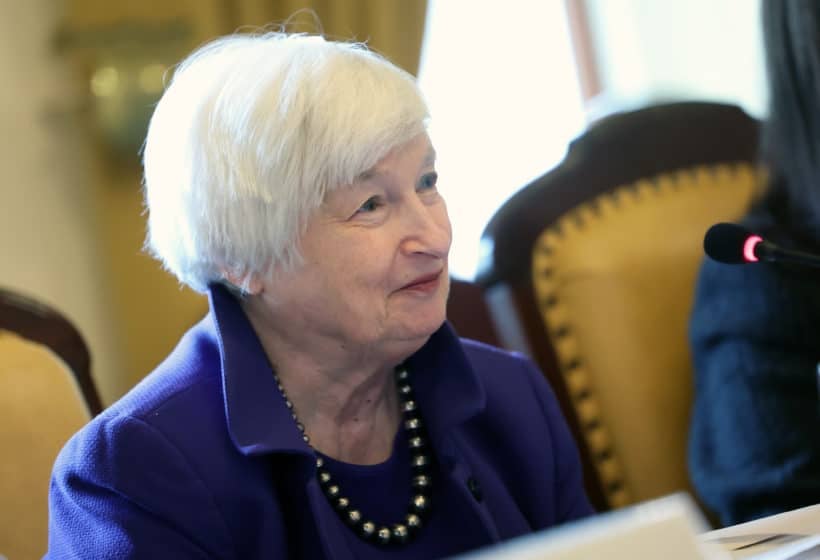
DAKAR, Jan 19 (Reuters) – U.S. Treasury Secretary Janet Yellen will kick off a year of visits by top U.S. officials to Africa on Friday aiming to firm up U.S.-Africa ties after decades in which China has dominated investment across the continent.
In a speech to be delivered at a business event in Senegal’s capital Dakar, the first leg of her three-country trip, Yellen will map out the U.S. vision for strengthening African relations, eyeing the massive economic opportunities created by its demographic boom.
With stops planned in Zambia and South Africa, Yellen’s visit comes after a lengthy meeting with Chinese Vice Premier Liu He in Zurich on Tuesday, when both sides underscored the need for greater coordination on global challenges such as climate change and food security.
U.S. officials said the increased engagement by President Joe Biden and U.S. officials was aimed at deepening existing ties with Africa, but they are also pitching what they say is a more sustainable alternative to China’s collateralised loans and non-market approach.
For their part, African nations say they are keen for increased investment and resources, at a time when tightening financial conditions and the appreciating U.S. dollar have raised the cost of servicing existing debt and stretched fiscal spending caused by COVID-19 and higher inflation.
But some remain sceptical of a Cold War scenario that forces them to choose sides, said one industry leader.
U.S. officials played down any rivalry.
“We’re here for the U.S.-Africa relationship. And that’s kind of it, full stop. It’s not about … U.S.-China dynamics,” one senior Treasury official told reporters.
The concept of “playing out broader geopolitics between ourselves and another third country on the African continent is exactly the opposite of the kind of relationship that we want to build and strengthen with Africa”, a second senior Treasury official added.
BOOMING POPULATION
In her remarks, Yellen will underscore the message delivered by Biden at last month’s Africa Leaders Summit in Washington: “The United States is all in on Africa, and all in with Africa.”
Yellen will focus on building relationships and understanding the barriers to investment, with no new financial announcements planned on top of the $15 billion announced at the December summit, officials said.
Chinese trade with Africa is about four times that of the United States, and Beijing rapidly expanded its lending by offering cheaper loans, although the opaque terms and collateral requirements are now being questioned by some African countries.
Yellen has criticised Beijing – now the world’s largest creditor – for dragging its heels in restructuring the debt of Zambia and other poor countries in Africa, an issue Treasury officials said they raised during Tuesday’s meeting with Liu.
China, for its part, argues that multilateral institutions should also be required to accept reductions in the debt they are owed. It says it supports resolving Zambia’s debt issues.
The U.S. Treasury secretary will highlight the opportunities presented by Africa’s young and booming population, with Africans projected to make up a quarter of the world’s population in less than 30 years and its people becoming more educated, urbanised, and connected to the rest of the world.
China this week reported its first population drop in six decades. By contrast, the number of Sub-Saharan Africans reaching working age will exceed that of the rest of the world combined by 2035, presenting big opportunities for growth, but also bigger markets for U.S. goods, Yellen said.
Yellen cited $11 billion in commitments by the U.S. Development Finance Corp and $3 billion in programs by the Millennium Challenge Corp in 14 African countries, with more in the pipeline.
The G7 group of wealthy Western nations also planned to mobilise some $600 billion for global infrastructure investments over the next five years, she said.
Biden also last month backed the addition of the African Union as a permanent member of the Group of 20 major economies, known as the G20.
“African countries firmly belong at the table. Their communities are disproportionately vulnerable to the effects of global challenges. And any serious solution requires African leadership and African voices,” Yellen said.
(Reporting by Andrea Shalal; Additional reporting by Joe Bavier; Editing by Bernadette Baum and Vin Shahrestani)

